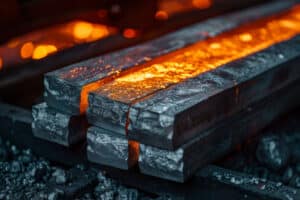
Refractory anchors are subjected to extreme temperatures, corrosive environments, and mechanical stresses. As such, the choice of alloy directly influences the anchor’s ability to withstand these challenges. Different alloys exhibit varying levels of strength, heat resistance, and corrosion resistance, making it essential to match the alloy properties with the specific operational conditions of your application.
High-temperature environments can degrade certain materials, leading to premature failure. Alloys specifically designed for high-temperature applications, such as Inconel or stainless steel, provide superior resistance to oxidation and thermal fatigue, ensuring the longevity of the anchors.
Many industrial processes involve corrosive substances, which can significantly shorten the lifespan of refractory anchors. Choosing alloys that are resistant to chemical attack is paramount. For example, nickel-based alloys often offer enhanced resistance to both oxidation and sulfidation, making them ideal for harsh chemical environments.
The mechanical properties of the alloy, including tensile strength and ductility, directly affect the anchor’s ability to withstand operational loads and thermal expansion. A well-chosen alloy will maintain its integrity under stress, preventing anchor failure that could lead to costly downtimes and repairs.
While it may be tempting to opt for a more economical alloy, the long-term implications of reduced performance can lead to higher costs. Investing in high-quality alloys can result in fewer replacements and maintenance issues, ultimately saving money in the long run.
At Refractory Anchors Inc., we are committed to providing our clients with the highest quality refractory anchors tailored to their specific needs. Our team of experts works closely with customers to understand their operational environments and recommend the most suitable alloys. By leveraging advanced materials and manufacturing techniques, we ensure that our anchors meet the rigorous demands of high-temperature applications.
Selecting the right alloy for refractory anchors is a decision that should not be taken lightly. The right choice can enhance performance, extend equipment life, and reduce maintenance costs. At Refractory Anchors Inc., we are dedicated to helping you make informed decisions that will support the success of your operations. If you have questions about alloy selection or need assistance in choosing the right refractory anchors for your specific application, don’t hesitate to reach out. Our team is here to help you navigate the complexities of refractory materials to achieve optimal results.